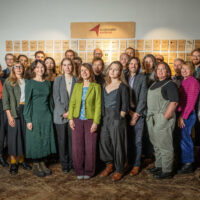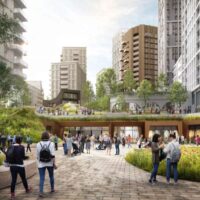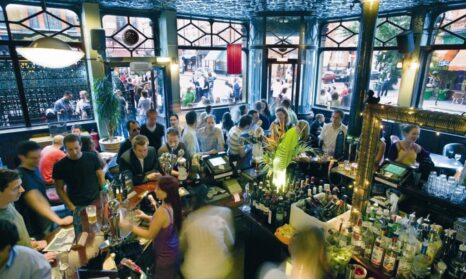How we helped Pizza Hut Restaurants make progress towards net zero carbon
The challenge: supporting Pizza Hut Restaurants to achieve its net zero carbon goals
Pizza Hut Restaurants (PHR) has been working on sustainability behind the scenes for many years, focusing on food waste, energy management, employee training, as well as development and procurement.
As a member of the Sustainable Restaurant Association, it was keen to establish itself as a leader among the high-street restaurant sector for action on climate change and has an ambition to be net zero carbon by 2030. It commissioned us to analyse the carbon emissions of its entire operations, to identify ‘hotspots’ or areas of high impact, which would enable it to prioritise its efforts.
How we helped:
in-depth carbon footprinting of scope 1, 2 and 3 emissions
Bioregional measured the carbon footprint of the whole business’ operations. This included looking at the carbon impacts of its properties, the sourcing of ingredients used and how they are transported and packaged, what is wasted and how employees and customers travel to restaurants.
Unsurprisingly, the greatest impacts lie in food and drink, which represented 58% of the total footprint. Cheese alone represents 19% of the company’s carbon footprint. More surprising was the amount of carbon emissions generated by customer and employee travel. Clearly this is a difficult area as it’s something the company cannot directly control, although there’s scope for encouraging and incentivising lower-impact forms of transport.
The biggest challenge was to understand the carbon footprint of deliveries, given that so many are made via aggregators like Deliveroo and Uber Eats. In these cases, we made estimates based on available delivery data and assumptions on transport of food to people’s homes.
The Bioregional team were invaluable in helping us understand where our greatest impacts lie. Thanks to their expert support, the carbon footprint analysis showed us just how important it is not just to focus on what happens within the supply chain and the four walls of your operations. We are in a great position now to be able to start thinking about what can be done to mitigate these impacts.
Steve Packer, Director of Supply Chain and IT at Pizza Hut Restaurants UK
The impact: an accurate carbon footprint to help prioritise sustainability efforts
Pizza Hut already knew that food, and cheese in particular, would be a big part of its carbon footprint, but this clearly wasn’t the full story. It is now armed with the hard data it needs in order to be able to prioritise its efforts. The company has now started working with its biggest suppliers and their dairy farmers to improve practices and is also looking at how it can encourage more sustainable forms of employee and customer travel.
It will also enable PHR to communicate with employees, customers and suppliers, to raise knowledge and awareness among these groups and to use the information as a tool to collaborate with relevant parties. Monitoring greenhouse gas emissions over time will provide evidence on the progress towards its 2030 net-zero carbon target and will enable PHR to celebrate the positive impact of changes made.







